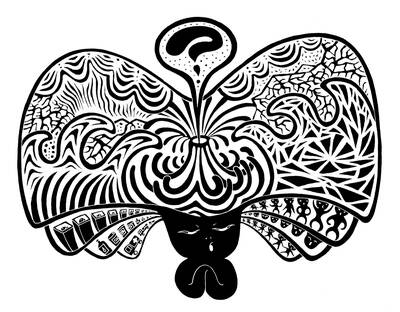A series of strong earthquakes in Hualien County not only caused severe damage in Taiwan, but also revealed that China’s power has permeated everywhere.
A Taiwanese woman posted on the Internet that she found clips of the earthquake — which were recorded by the security camera in her home — on the Chinese social media platform Xiaohongshu.
It is spine-chilling that the problem might be because the security camera was manufactured in China.
China has widely collected information, infringed upon public privacy and raised information security threats through various social media platforms, as well as telecommunication and security equipment.
Several former TikTok employees revealed to Fortune magazine that every two weeks hundreds of thousands of US users’ data are sent to ByteDance, TikTok’s Beijing-based parent company.
The data include user names, locations and even population statistics.
No matter how much TikTok denies its connection to ByteDance, the report is a sharp rebuttal of its claims.
The most worrying issue is how much of that information has been improperly used.
The US has launched a series of preventative measures to stop the Chinese invasion of privacy. US President Joe Biden last year signed the National Defense Authorization Act for Fiscal Year 2024 which prohibits federal agencies from using funds to buy or use drones made in China as they might endanger US national security.
Prohibited drone manufacturers include Da-Jiang Innovations and Autel Intelligent Technology.
The US House of Representatives on April 20 passed a bill urging ByteDance to sell TikTok or face a nationwide ban in the US, aiming to remove the possibility of Chinese interference and infiltration, such as the violation of privacy and information security for strategic objectives.
China’s adoption of non-military methods such as soft power to annex Taiwan is not something new.
Its strategic direction for infiltrating Taiwan by land, people, and through hearts and minds — assimilating Taiwanese through China’s culture and language — has not changed, but its tools and approaches have become more technological and flexible.
Taiwanese are still unaware of this happening.
So far China has attempted to invade their privacy, steal their information and analyze their data to precisely promote content. China even monitors Taiwanese, pervasively interfering with everything in their daily lives.
Former president Ma Ying-jeou (馬英九) early last month visited China. The US considers his visit to be a threat to national security, similar to how Chinese drone manufacturers are a threat to the US.
After returning to Taiwan, Ma even urged amending the nation’s Anti-Infiltration Act (反滲透法), with the Chinese Nationalist Party (KMT) and China’s Taiwan Affairs Office speaking up for him.
While other nations are working together to prevent Chinese infiltration, what the KMT did shows that it wishes to run counter to the rest of the world, and is opposed to safeguarding the nation’s democracy and freedoms, and protecting the public’s privacy and security.
It is essential that the central and local governments propose practical countermeasures. Most importantly, Taiwanese should stay alert when using information technology systems at home.
Yen Wei-tzu is a New Taipei City councilor.
Translated by Chien Yan-ru

Labubu, an elf-like plush toy with pointy ears and nine serrated teeth, has become a global sensation, worn by celebrities including Rihanna and Dua Lipa. These dolls are sold out in stores from Singapore to London; a human-sized version recently fetched a whopping US$150,000 at an auction in Beijing. With all the social media buzz, it is worth asking if we are witnessing the rise of a new-age collectible, or whether Labubu is a mere fad destined to fade. Investors certainly want to know. Pop Mart International Group Ltd, the Chinese manufacturer behind this trendy toy, has rallied 178 percent
My youngest son attends a university in Taipei. Throughout the past two years, whenever I have brought him his luggage or picked him up for the end of a semester or the start of a break, I have stayed at a hotel near his campus. In doing so, I have noticed a strange phenomenon: The hotel’s TV contained an unusual number of Chinese channels, filled with accents that would make a person feel as if they are in China. It is quite exhausting. A few days ago, while staying in the hotel, I found that of the 50 available TV channels,

Life as we know it will probably not come to an end in Japan this weekend, but what if it does? That is the question consuming a disaster-prone country ahead of a widely spread prediction of disaster that one comic book suggests would occur tomorrow. The Future I Saw, a manga by Ryo Tatsuki about her purported ability to see the future in dreams, was first published in 1999. It would have faded into obscurity, but for the mention of a tsunami and the cover that read “Major disaster in March 2011.” Years later, when the most powerful earthquake ever
There is no such thing as a “silicon shield.” This trope has gained traction in the world of Taiwanese news, likely with the best intentions. Anything that breaks the China-controlled narrative that Taiwan is doomed to be conquered is welcome, but after observing its rise in recent months, I now believe that the “silicon shield” is a myth — one that is ultimately working against Taiwan. The basic silicon shield idea is that the world, particularly the US, would rush to defend Taiwan against a Chinese invasion because they do not want Beijing to seize the nation’s vital and unique chip industry. However,